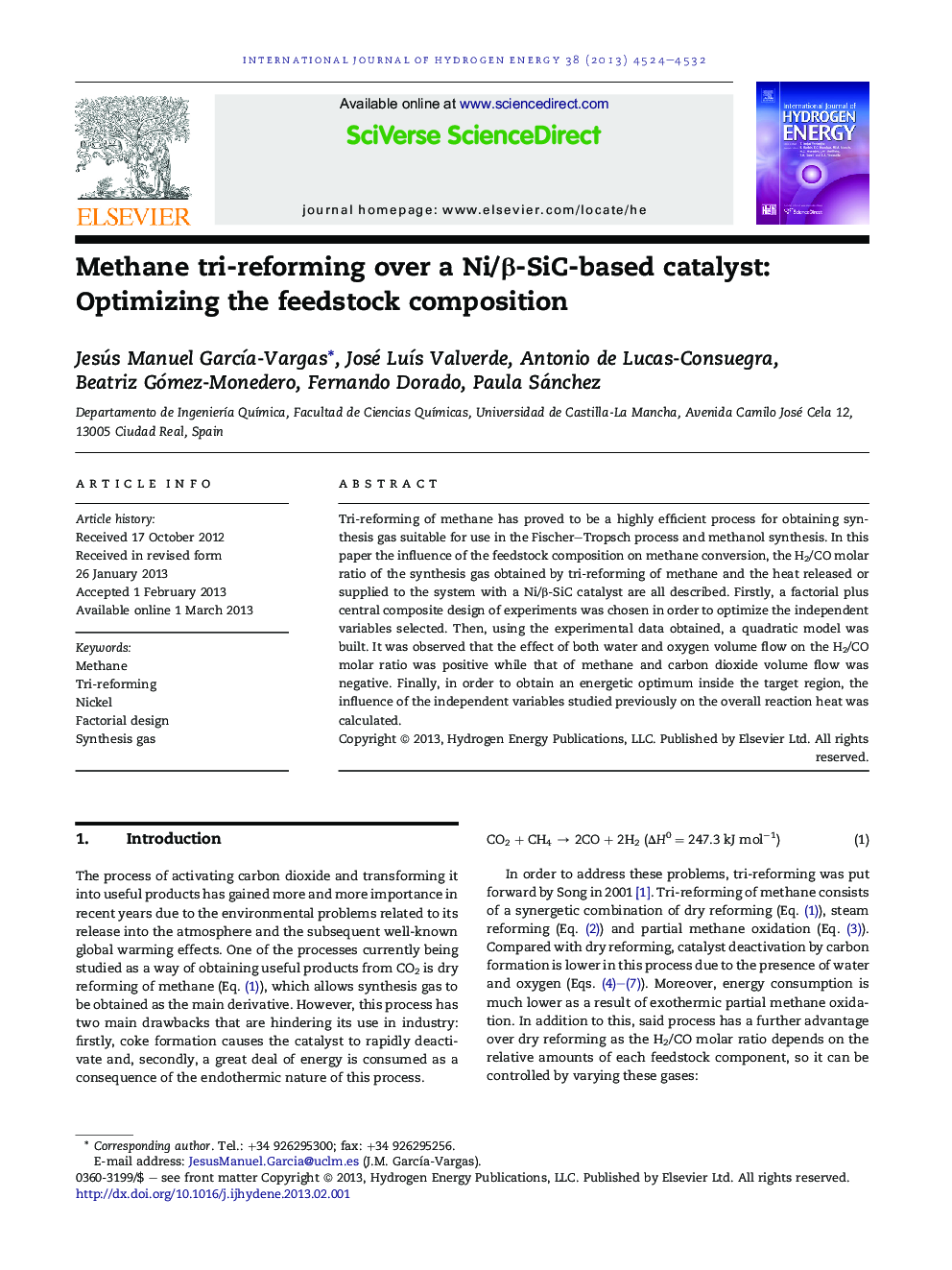| Article ID | Journal | Published Year | Pages | File Type |
|---|---|---|---|---|
| 1278147 | International Journal of Hydrogen Energy | 2013 | 9 Pages |
Tri-reforming of methane has proved to be a highly efficient process for obtaining synthesis gas suitable for use in the Fischer–Tropsch process and methanol synthesis. In this paper the influence of the feedstock composition on methane conversion, the H2/CO molar ratio of the synthesis gas obtained by tri-reforming of methane and the heat released or supplied to the system with a Ni/β-SiC catalyst are all described. Firstly, a factorial plus central composite design of experiments was chosen in order to optimize the independent variables selected. Then, using the experimental data obtained, a quadratic model was built. It was observed that the effect of both water and oxygen volume flow on the H2/CO molar ratio was positive while that of methane and carbon dioxide volume flow was negative. Finally, in order to obtain an energetic optimum inside the target region, the influence of the independent variables studied previously on the overall reaction heat was calculated.
► Ni/β-SiC as catalyst for the tri-reforming. ► Factorial plus central composite design of experiments to optimize feed composition. ► Feed composition has not a clear effect over CH4 conversion in the range considered. ► H2O and O2 had a positive influence over H2/CO molar ratio in the effluent gas. ► CO2 and CH4 had a negative influence over H2/CO molar ratio in the effluent gas.
